If you have a dog that snorts, grunts, or makes pig-like noises, you may wonder why they do it. Two common dogs that make pig noises are pugs and french bulldogs, and they are not alone. There are several reasons why dogs make pig noises, ranging from harmless to concerning. In this article, we will explore the potential causes of pig noises in dogs, including a shorter airway, throat irritation, reverse sneeze, collar, collapsed trachea, obesity, infection, and more. Additionally, we will discuss when to worry about pig noises, why dogs make pig noises when playing, when you pet them, when excited, and even when sleeping. So, let’s dive in and find out why does my dog sound like a pig!

Why Does My Dog Make Pig Noises?
Have you ever heard your dog make pig-like noises such as snorting, grunting, or wheezing? If so, you may be wondering why they do it. Well, there are several potential reasons why dogs make pig noises, and they can range from harmless to concerning.
One reason why dogs make pig noises is due to their shorter airway. Dogs with short snouts and smushed faces are called brachycephalic breeds. These breeds, including dogs such as pugs, bulldogs, and Boston terriers, have shorter airways, which can lead to snorting and snoring. Additionally, throat irritation can cause your dog to make pig noises. This can be due to allergies, infections, or even kennel cough.
Another potential cause of pig noises in dogs is a condition called reverse sneezing. Reverse sneezing is when a dog inhales quickly and noisily, making a snorting or honking sound. It is usually harmless, but if it happens frequently, it’s best to consult with a veterinarian.
A collar that’s too tight or a collapsed trachea can also lead to pig noises in dogs. Obesity is another potential cause, as excess weight can put pressure on the airway and cause snorting and wheezing.
If your dog has an infection such as kennel cough or pneumonia, they may also make pig noises. It’s important to consult with a veterinarian if you suspect an infection, as they can prescribe appropriate treatment. Symptoms of an infection can include fever, lethargy, poor appetite, and green or yellow discharge from nose or eyes.
In some cases, pig noises can be a harmless quirk of your dog’s personality. Sometimes positioning can also cause your dog to make pig noises, such as when they’re sleeping on their back or with their head tilted back.
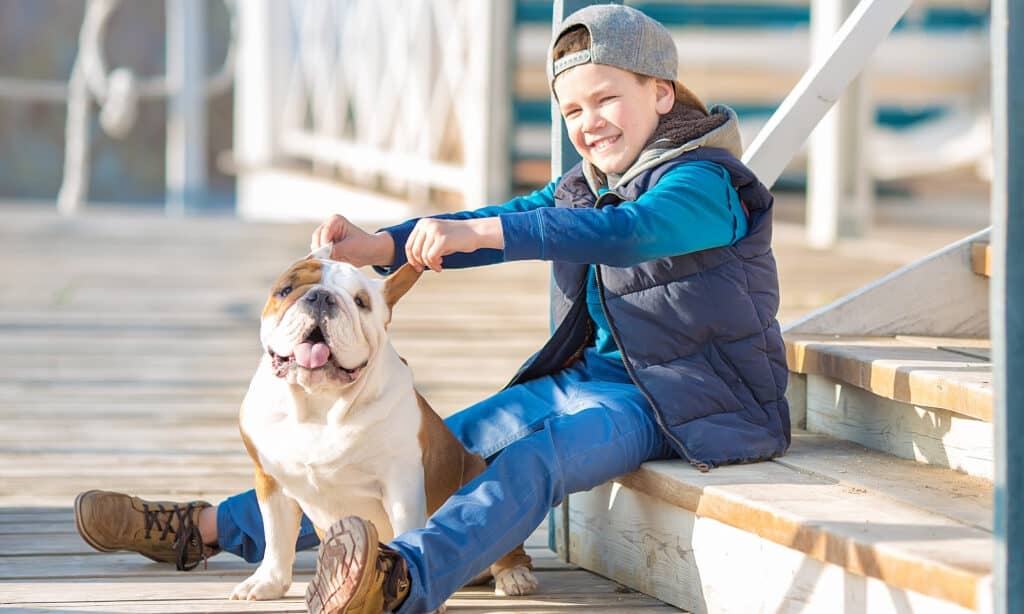
Shorter Airway
Shorter airways are a common reason why dogs make pig noises. Certain breeds, such as pugs, bulldogs, and Boston terriers, have shorter airways due to their skull shape and facial structure. This can lead to snorting, snoring, and other pig-like noises.
A shorter airway can cause breathing difficulties for dogs, especially during exercise or in warm weather. It can also make them more susceptible to respiratory infections and other health issues.
If you have a dog with a shorter airway, it’s important to monitor their breathing during sleep and play and watch for signs of distress. They may need to take breaks during exercise or avoid strenuous activities altogether. It’s also important to keep them cool and hydrated, especially during hot weather.
In some cases, surgery may be recommended to help alleviate breathing difficulties in dogs with shorter airways. However, this is a serious decision that should be made in consultation with a veterinarian.
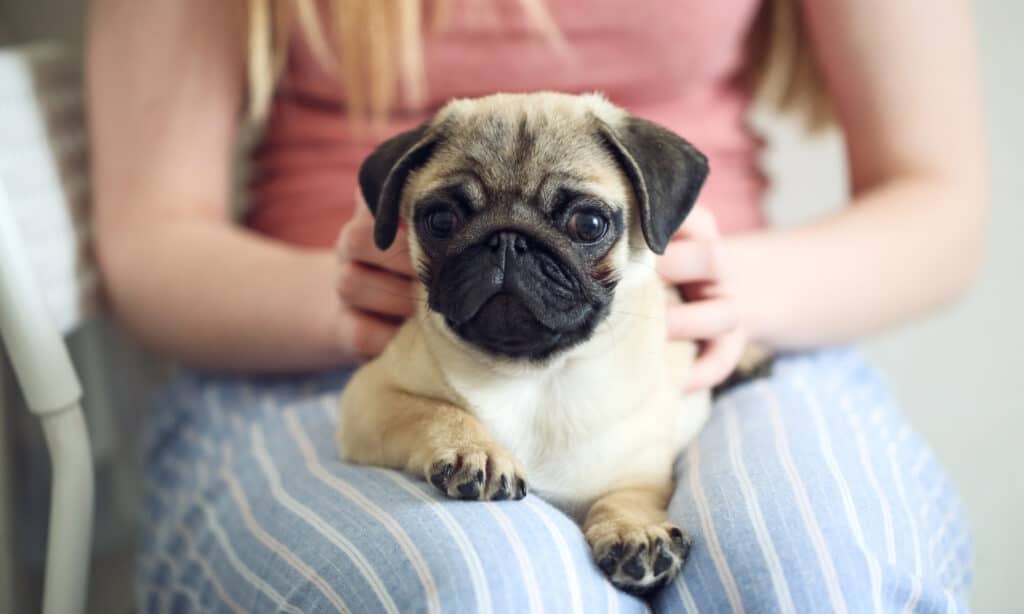
Throat Irritation
Dogs, just like humans, can experience throat irritation, which can be a reason for them making pig noises. This irritation can be caused by various factors including allergies, infections, humidity level,s or other irritants.
When dogs have allergies, their throat can become inflamed, leading to respiratory symptoms such as coughing, sneezing, and wheezing. Infections like kennel cough or pneumonia can also cause irritation in the throat, which can cause your furry friend to make pig-like noises.
Exposure to smoke, dust or chemicals can also cause throat irritation in dogs, which can lead to coughing, wheezing, and other respiratory symptoms. In such cases, it is crucial to keep your dog away from these irritants. Some items that we may not think about as irritating can be a big problem for your dog. Think about items such as air fresheners, incense, candles, plug-ins, carpet powders, fabric sprays, fabric softeners, scent beads, and cleaning products.
There are a few steps you can take to help alleviate throat irritation in your dog. Keeping your dog hydrated by providing plenty of fresh water can help soothe their throat. Keeping them away from smoke, dust, and other irritants can also help. An air purifier can greatly improve indoor air quality for the benefit of y ou and y our dog.
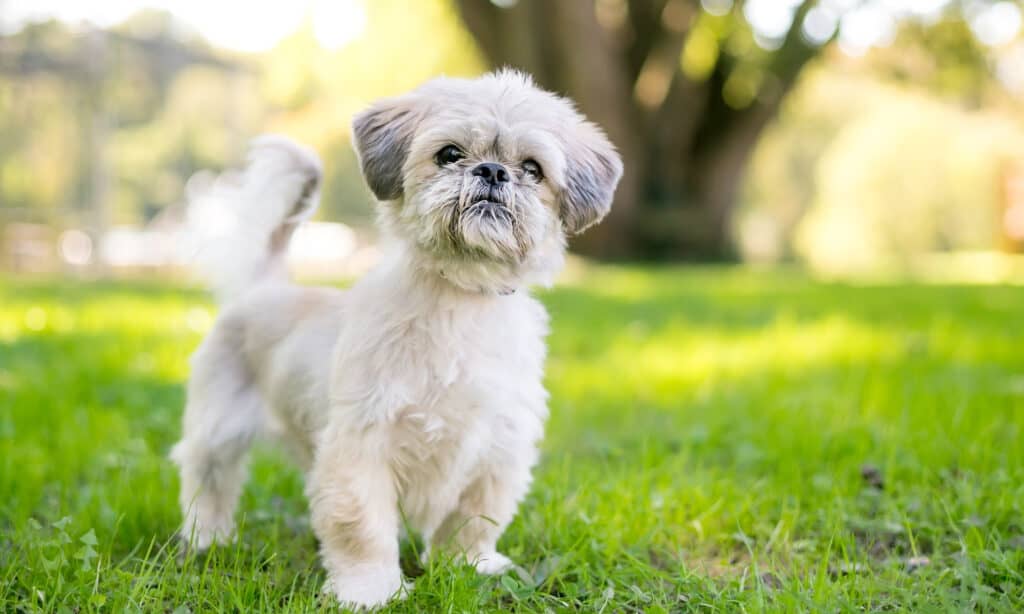
Reverse Sneeze
Reverse sneezing is a condition that can sound like pig-like noises in dogs. It is a reflex action that happens when a dog inhales quickly and noisily, making a snorting or honking sound.
Reverse sneezing is relatively common in dogs, and it is usually harmless. However, it can be alarming for pet owners who are not familiar with the condition. Reverse sneezing can be caused by various factors, including allergies, excitement, or irritation in the throat.
When a dog experiences reverse sneezing, they may stand still with their elbows apart and their head extended forward. They may also make snorting, gagging, or honking noises.
If your dog experiences reverse sneezing, it’s important to remain calm and wait for the episode to pass. You can try gently massaging their throat or comforting them by light petting. It’s also a good idea to keep your dog calm and avoid triggering factors, such as allergies or excitement.
In most cases, reverse sneezing in dogs is harmless, and the episodes will pass within a few minutes. However, if your dog experiences increasingly frequent or prolonged episodes of reverse sneezing, it’s best to consult with a veterinarian to rule out any underlying health issues.
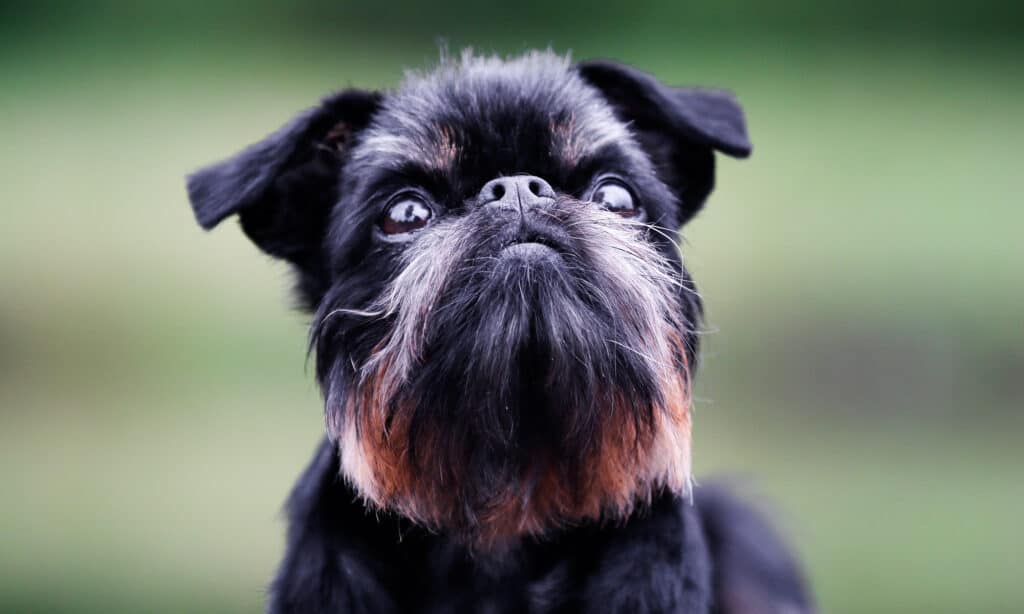
Collar
Collars can also be a potential cause of pig noises in dogs. A collar that’s too tight or positioned too high on the neck can put pressure on the dog’s windpipe, making it difficult for them to breathe properly. This can lead to snorting, wheezing, and other respiratory symptoms.
If you suspect that your dog’s collar is causing them discomfort, it’s important to adjust the collar or choose a different type of collar. A harness may be a good alternative to a collar, as it distributes pressure more evenly across the dog’s body.
It’s also important to ensure that the collar or harness fits properly and is not too tight. You should be able to fit two fingers between the collar or harness and your dog’s neck.
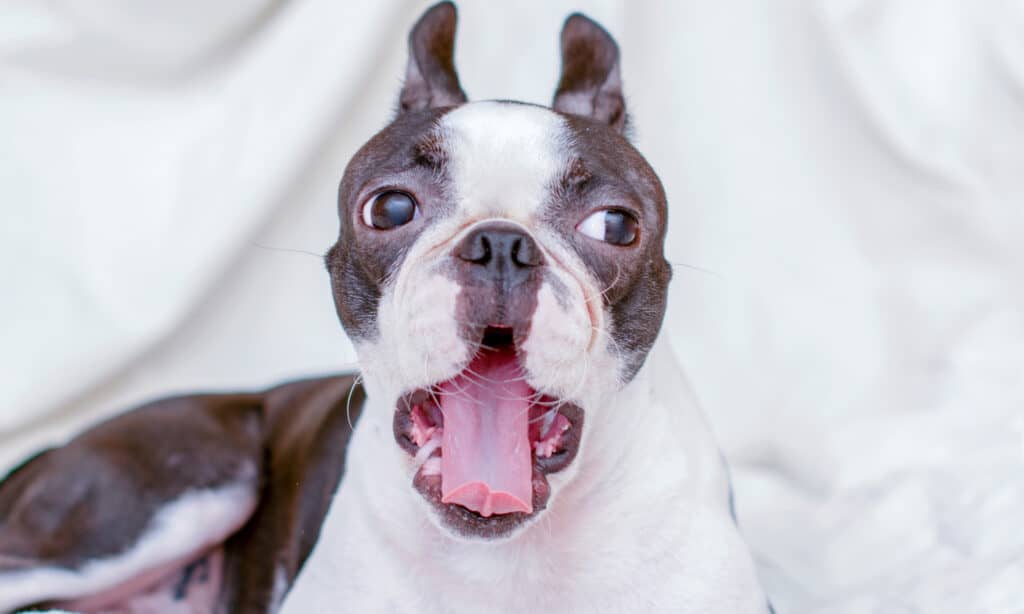
Collapsed Trachea
Collapsed trachea is a potential cause of pig noises in dogs, particularly in smaller breeds such as Chihuahuas and Pomeranians. A collapsed trachea occurs when the cartilage rings that support the trachea become weakened or damaged, causing the trachea to collapse inward and obstruct airflow.
A dog with a collapsed trachea may make a honking or wheezing sound, especially when they’re excited or exercising. They may also have difficulty breathing, coughing, and gagging.
If you suspect that your dog has a collapsed trachea, it’s important to consult with a veterinarian. A vet can diagnose the condition through X-rays or other diagnostic tests and prescribe appropriate treatment. Depending on the severity of the condition, your dog may need medication or surgery.
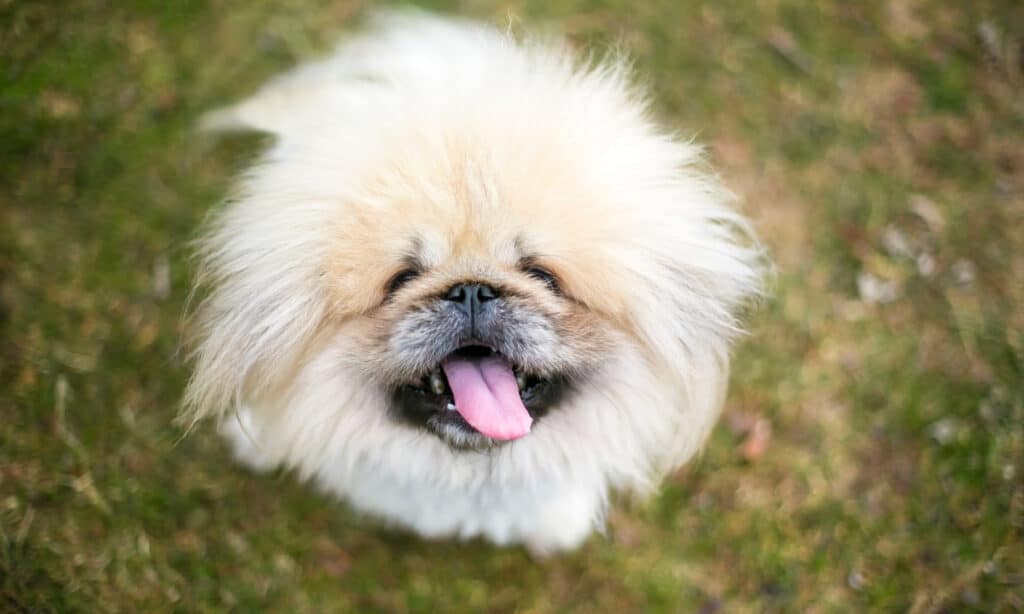
Obesity
When dogs carry extra weight, it can cause pig noises as it puts pressure on their airway, making it difficult for them to breathe properly. This issue is especially common during exercise or in warm weather.
Obesity in dogs is a serious health concern as it can lead to a range of health issues, such as heart disease, diabetes, and joint problems.
A weight loss plan for dogs usually includes gradual dietary changes, such as switching to a low-fat, low-carb or high-fiber diet, and increasing exercise and activity levels. Making slow changes to your dog’s diet and exercise routine can avoid adding stress to their body.
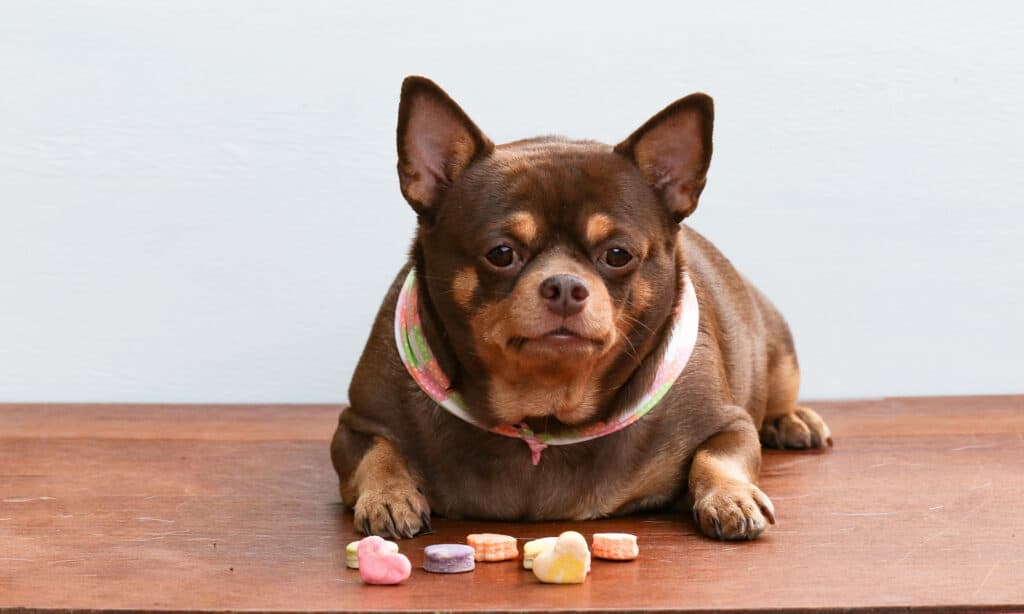
Infection
Infection is another potential cause of pig noises in dogs. When dogs get infections, particularly in their respiratory system, they can experience inflammation and mucus buildup in their airways. This can cause snorting, wheezing, and other pig-like noises.
Common respiratory infections in dogs include kennel cough, pneumonia, and bronchitis. These infections can be caused by various factors, including bacteria, viruses, and fungi. Dogs that are exposed to other dogs, particularly in crowded or stressful environments, are at higher risk of respiratory infections.
If you suspect that your dog has an infection, you should schedule an appointment with a veterinarian. A vet can diagnose the underlying cause of the infection and prescribe appropriate treatment, such as antibiotics or other medications.
In addition to medical treatment, there are steps you can take to help alleviate respiratory symptoms in your dog. Keeping your dog calm and avoiding exposure to other dogs can help reduce stress and prevent the spread of infection. Keeping your dog hydrated can also help loosen mucus and reduce respiratory distress.
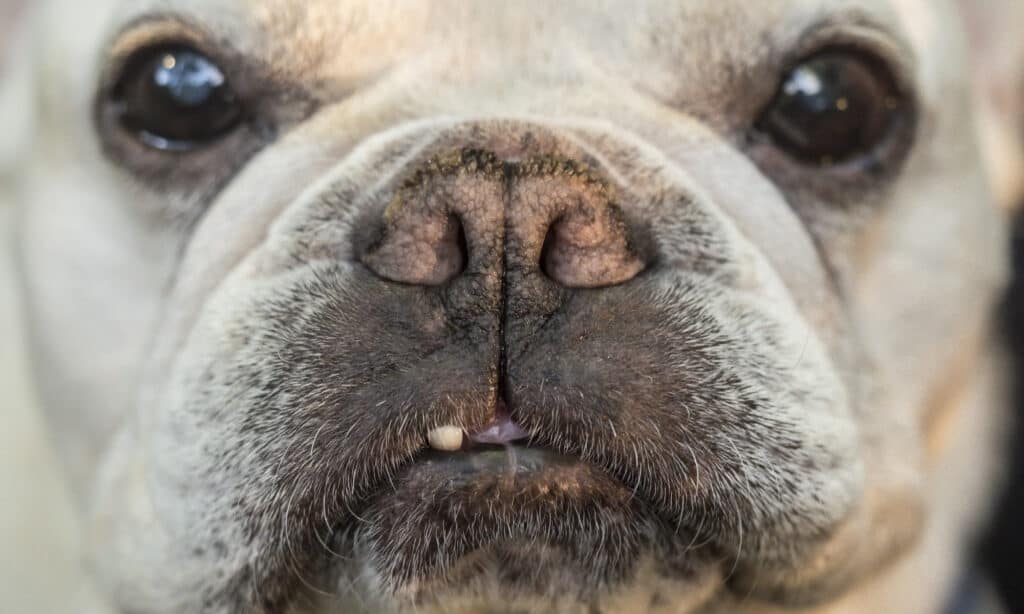
Positioning
The positioning of a dog can also affect whether they make pig-like noises or not. Dogs with shorter airways, such as brachycephalic breeds like pugs and bulldogs, may be more prone to making pig-like noises, particularly when they are lying down.
When dogs with shorter airways lie down, their airway can become compressed, making it difficult for them to breathe properly. This compression can cause snorting, wheezing, and other respiratory symptoms, including pig-like noises.
To alleviate respiratory symptoms in dogs with shorter airways, it’s important to provide them with proper positioning. Elevating their head and upper body can help keep their airway open and reduce the likelihood of pig-like noises. Additionally, providing a comfortable, supportive bed can help keep their body in the proper position during sleep. One of my dogs likes beds with those bolsters on the sides so that he can rest his head on the side like a pillow. This reduces any pressure on the neck and throat area.
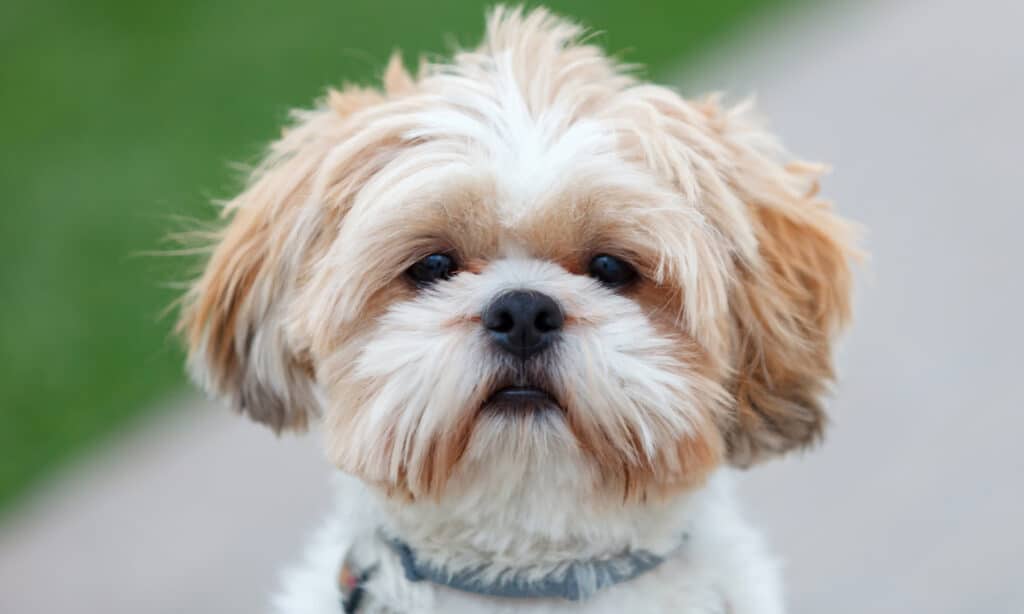
Dreaming
Dogs can make pig-like noises when they are dreaming. This behavior is a natural and normal part of a dog’s sleep cycle.
When dogs enter the REM (rapid eye movement) stage of sleep, they may exhibit various behaviors, including twitching, whimpering, and even making grunting-like noises. These noises are often a result of their muscles relaxing, including those in the respiratory system, which can cause the soft tissues in the airway to vibrate.
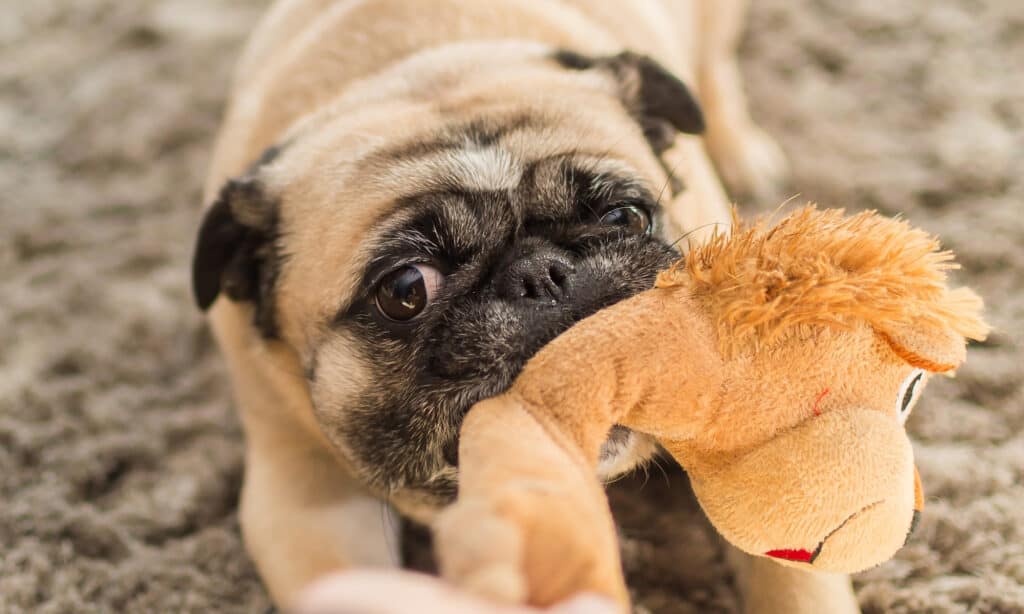
While it’s usually harmless, excessive or prolonged pig-like noises during sleep could indicate a more severe respiratory issue. If your dog is experiencing other respiratory symptoms or seems to be struggling to breathe during sleep it’s a good idea to see a vet.
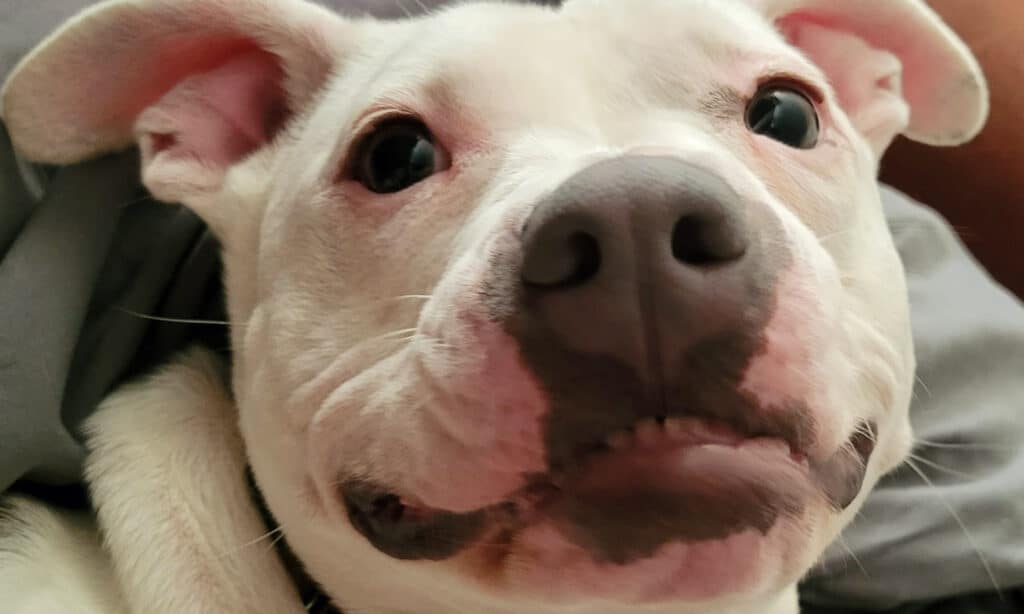
Home Treatment
There are some home treatments that you can try if your dog is making pig noises. One simple home treatment is to keep your dog hydrated. Fresh, clean water should be available to your dog at all times. This can help soothe the throat and reduce respiratory symptoms.
Another home treatment is to keep your dog calm and reduce stress. Stress can exacerbate respiratory symptoms in dogs, so keeping them calm and comfortable can help reduce pig-like noises. Avoiding exposure to irritants, such as smoke or chemicals, can also help reduce respiratory distress.
If your dog is experiencing pig-like noises due to allergies, antihistamines or other allergy medications may help alleviate symptoms.
Finally, if your dog is overweight, gradually changing their diet and increasing exercise levels can help reduce pig-like noises.
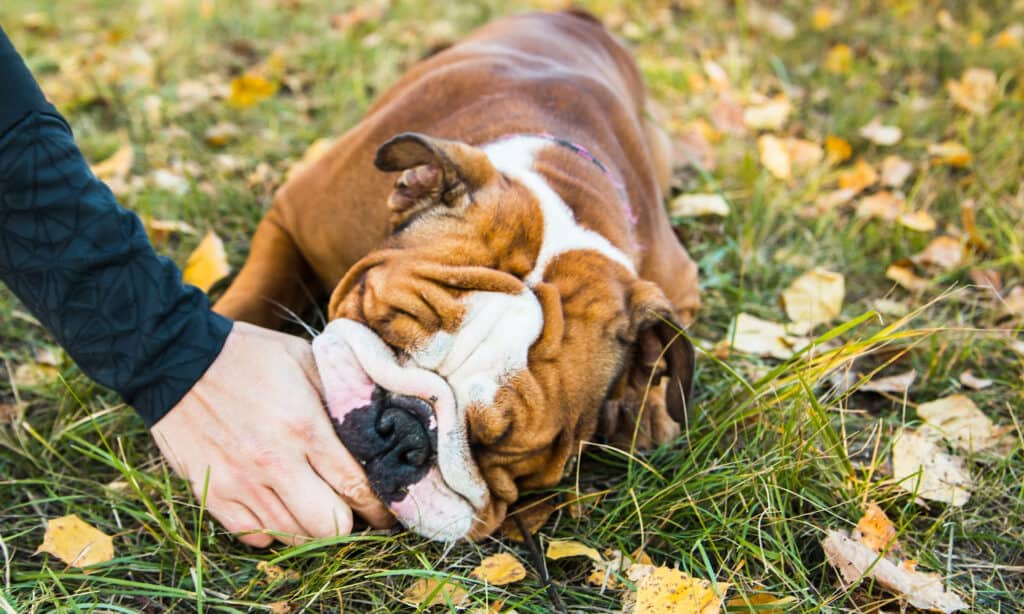
When to Worry About Pig Noises
While pig-like noises are common in dogs, there are some instances when you should be concerned and seek veterinary care.
If your dog is experiencing strange noises along with other respiratory symptoms, such as coughing, wheezing, or gagging, it could be a sign of a more severe respiratory issue. In this case, it’s important to seek veterinary care.
If your dog is making pig-like noises AND having difficulty breathing, it’s a medical emergency, and you should seek veterinary care immediately. Difficulty breathing can be a sign of various severe conditions, which may require immediate medical attention.
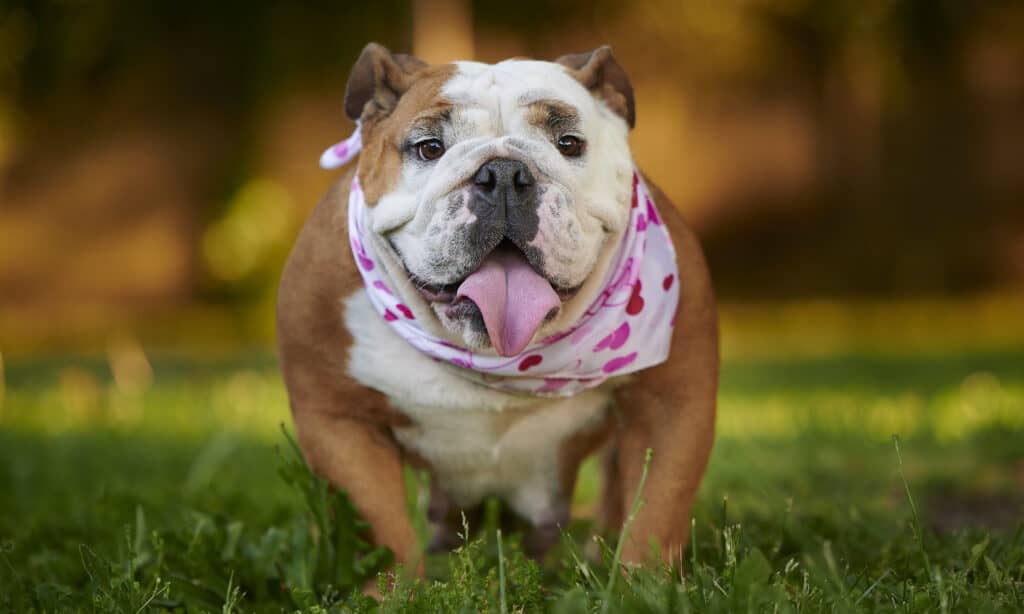
Why does my dog make pig noises when playing?
It’s common for dogs to make pig-like noises when playing. This behavior is often known as the “play sneeze” and is a result of the dog getting overly excited during play.
When dogs get excited, their adrenaline levels increase, which can cause the respiratory system to overreact. This can lead to snorting, wheezing, and other pig-like noises, even though the dog isn’t actually experiencing any respiratory distress.
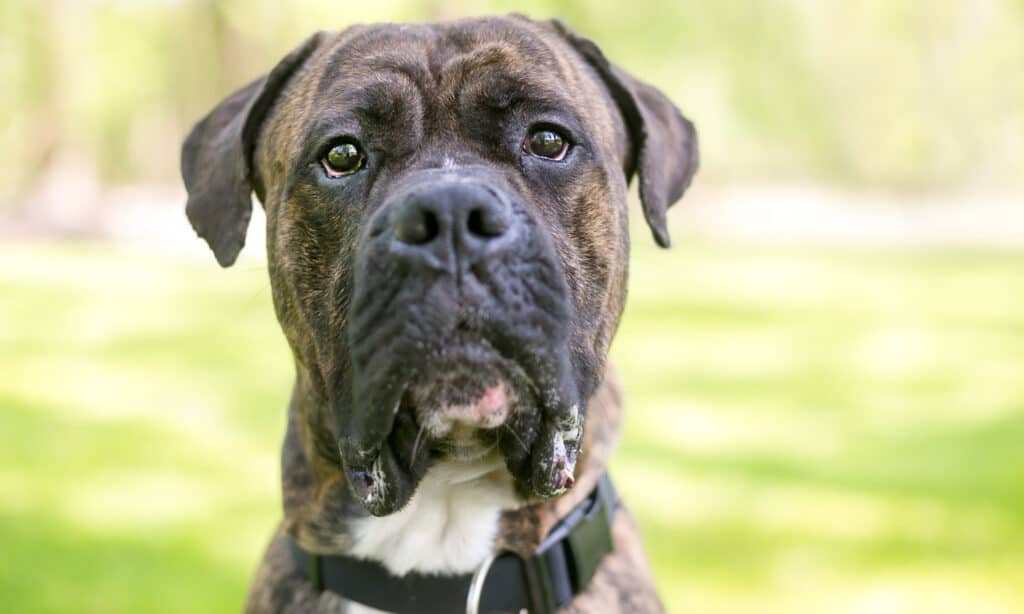
Why does my dog make pig noises when I pet him?
It’s common for dogs to make pig-like noises when being petted, particularly around the head and neck area. This behavior is often a result of dogs getting excited or showing affection.
When dogs get excited or feel happy, their respiratory system can overreact, causing pig-like noises. This is usually harmless and can be a sign that your dog is enjoying the attention and affection.
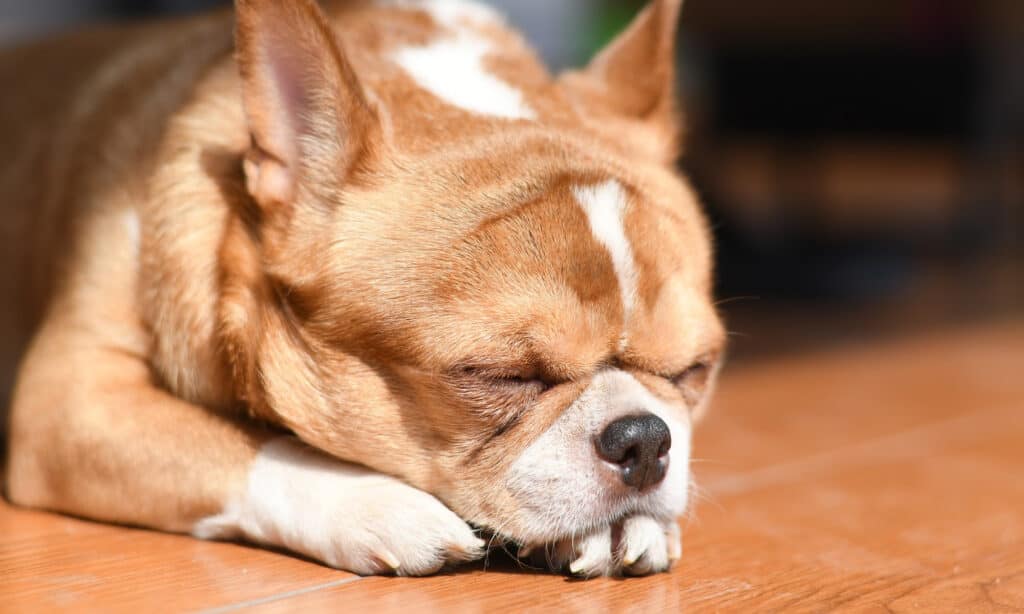
Why does my dog make pig noises when excited?
Dogs can make pig-like noises when they are excited, particularly during playtime or when greeting their owners. This behavior is often a result of their adrenaline levels increasing, which can cause their respiratory system to overreact.
This behavior is usually harmless and is a sign that your dog is happy and enjoying the moment.
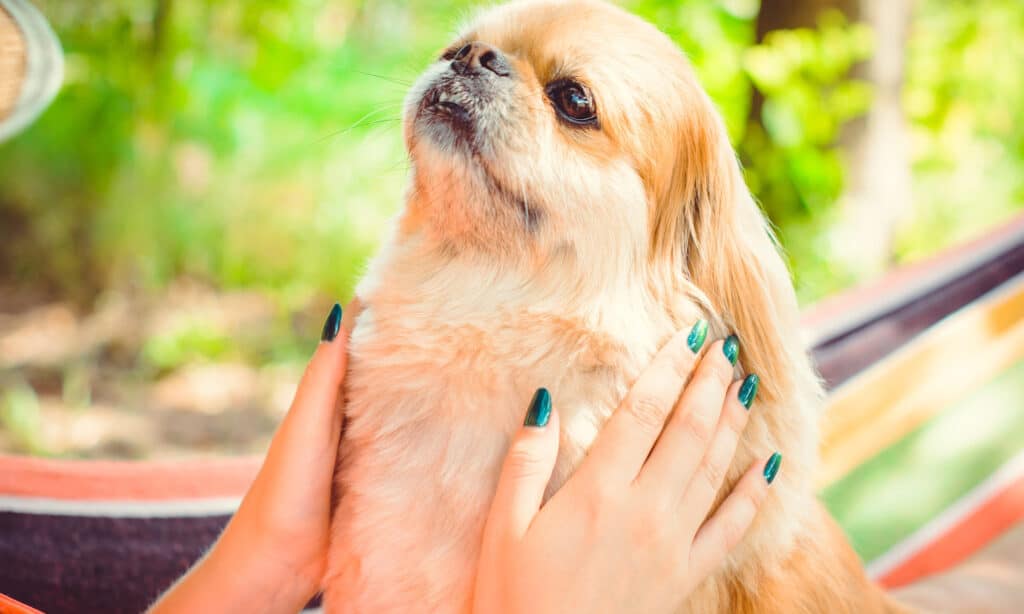
Why does my dog make pig noises when sleeping?
It’s not uncommon for dogs to make pig-like noises when sleeping. In fact, it’s normal behavior and is often a sign that your dog is in a deep sleep.
During deep sleep, a dog’s muscles relax, including those in the respiratory system. This relaxation can cause the soft tissues in the airway to vibrate, leading to snorting, wheezing, and other pig-like noises.
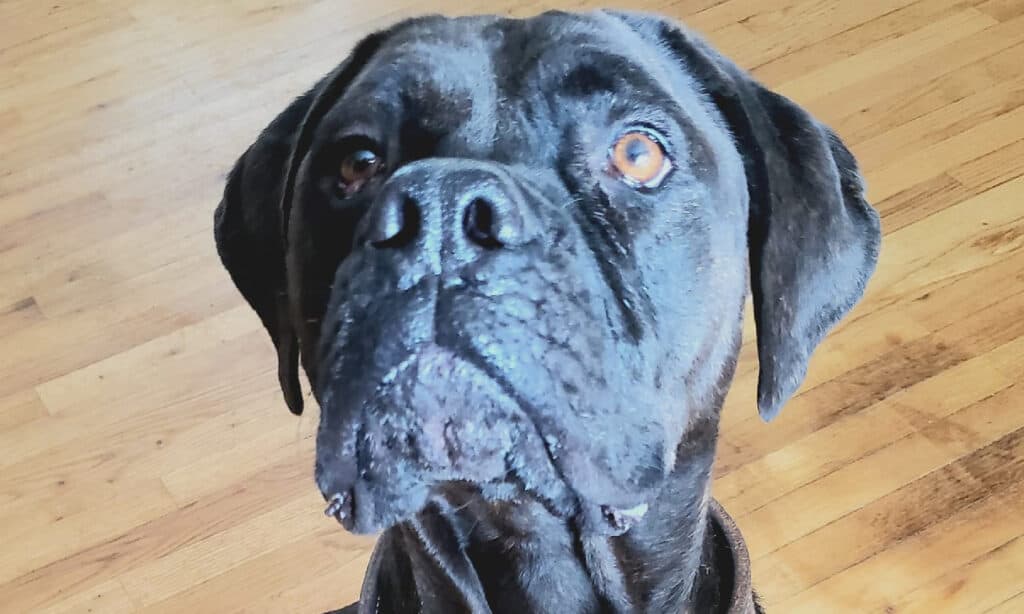
Conclusion
In conclusion, pig-like noises in dogs can have various causes, ranging from shorter airways to infections and obesity. While it’s often a harmless behavior, excessive or prolonged pig-like noises could indicate a more severe respiratory issue, requiring veterinary attention.
It’s important to monitor your dog’s respiratory health and let your vet office know if you notice any concerning symptoms. Treatment options may include medication, dietary changes, weight management, or even surgery, depending on the underlying cause.
Additionally, providing proper positioning and avoiding irritants such as smoke and dust can help alleviate respiratory symptoms in dogs. Using a harness instead of a collar and providing plenty of fresh water can also help reduce pressure on the airway.
Ultimately, pig-like noises in dogs are usually harmless and can be a sign of excitement or affection. By understanding the potential causes and seeking veterinary care when necessary, you can help ensure your furry friend’s respiratory health and overall well-being.
~Sheena
